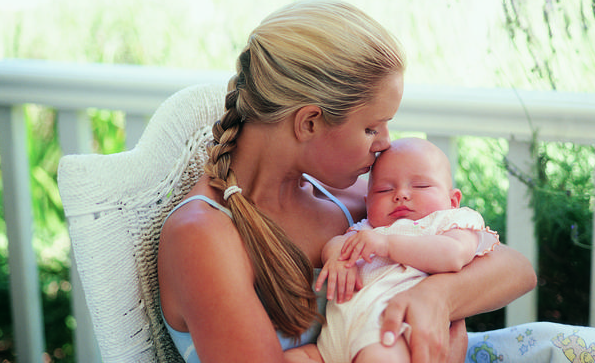The National Sleep Foundation recognizes this coming week, March 2-8, as National Sleep Awareness Week. In support, we wanted to share these five important facts about sleep and your infant.
And, we couldn’t let this week go by without giving you an opportunity to get more sleep for you and your family! During Sleep Awareness Week, use the coupon code SLEEPY at nuroobaby.com to receive one FREE NüRoo Swaddler with the purchase of another. Two swaddles for the price of one? Now that’s dreamy!
Now, to the sleep facts:
1. Sleep Begets Sleep
Although it seems counterintuitive, sleep begets sleep for babies. While you may be thinking, oh good, baby has been awake for awhile, s/he should really be tuckered out and ready for rest, the opposite is true. When babies sleep, their nervous systems settle. Thus, if your baby doesn’t get sleep, or doesn’t have sound sleep, they are missing out on the slowing and calming that sleep provides. The result is a nervous system on overdrive, unable to calm or sleep, no matter how exhausted baby may be. In addition to rough days and long nights with a cranky baby, loss of sleep shows cumulative long-term effects for your little one. Babies who sleep less are shown to have more difficulty learning, interacting and socializing. Unfortunately, as your baby becomes more and more sleep deprived, the harder it will be for them to sleep well. Stay ahead of the cycle… babies who are better rested will sleep better overall.
2. Swaddling could help your baby to sleep
Your baby spent nine months, safe, snug and secure in the womb, feeling the constant light pressure and “hug” of your uterus. After they’re born and through their first few months, you may find that replicating that same snug, being-held sensation will help baby both get to sleep, and stay asleep for longer periods of time. Swaddling has been around forever, and is a way of wrapping baby that creates a light pressure and continuous edges or touching. Also, maybe you’ve seen your baby quickly startle while asleep, flailing their arms out wide? That’s called the “Moro” reflex or “startle reflex” and although it usually only lasts a few seconds, it’s often enough to wake your sleeping baby. Swaddling your little one helps keep their arms snug, to prevent that feeling of free fall they can experience, and cause premature waking. Dr. Harvey Karp reports that swaddled babies sleep an extra 1-3 hours each night.
3) Your Baby’s Circadian Rhythm Development
Wondering why your baby seems to want to sleep all day and be up all night? Seems totally backwards, right? That’s because when babies are born, their circadian rhythms – physical, mental and behavioral cues – are not fully developed. So unlike adults, whose rhythms follow a roughly 24-hour clock, responding mostly to changes in daylight and darkness, babies are born without this internal sleep clock. Instead, their circadian rhythm take a bit to develop – typically between two and four months time. While this is just part of your baby’s natural development, you can support the process by offering frequent feedings every 2-3 hours during the day, getting outside for natural light, and by keeping the curtains or blinds in your home open. At night, you might find it helpful to keep the lights down low, not talk much and keep your voice quiet during feedings, and to put your baby back down as soon as they’ve been fed and changed.
4) The Importance of a Bedtime Routine
The reason you’ll hear the phrase “bedtime routine” so much and so often is because it’s been proven to be so important. Through your signals or cues, you are helping baby to understand that it is time for sleep. There is a feeling of safety and security in this repeated routine. A good age to start a bedtime routine is when baby is between 6 and 12 weeks old. The routine can be short, 15 minutes in total. It doesn’t matter what you do in your routine as much as it matters that you keep this routine consistent, repeating it night after night. Pretty standard are the “3 B’s”: bath, book then bed. But, you pick the individual elements that work best for you and your baby. Singing a lullaby with baby on your shoulder or cuddled in your arms, even the act of swaddling can serve as a cue. Just keep those elements regular so baby learns the routine. As s/he learns the routine, you’ll see that they go to sleep more quickly and easily. The same holds true for nap time. You can do a short and simple pre-nap routine to help baby get ready for daytime rest.
5) Babies Learn to Sleep From Parents
Our culture puts a lot of emphasis on newborns learning to sleep independently in their own rooms. Parents are typically discouraged from co-sleeping for fear it may hinder the child’s capacity to self-soothe and encourage an over-reliance on their parents to get to sleep. However, new research is saying just the opposite: that newborns actually develop healthy sleep cycles and sleep safer when they are physically close to us. In fact, the American Academy of Pediatrics recommends that parents and baby sleep in the same room for the first six months. (However, AAP still advises against bed-sharing.) While the days and nights can be long, your little one needs you to keep them close during this fleeting time.
Good luck and sleep little babies, sleep!





